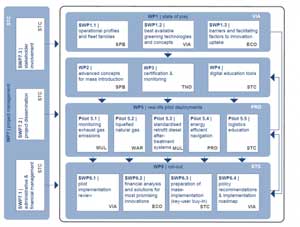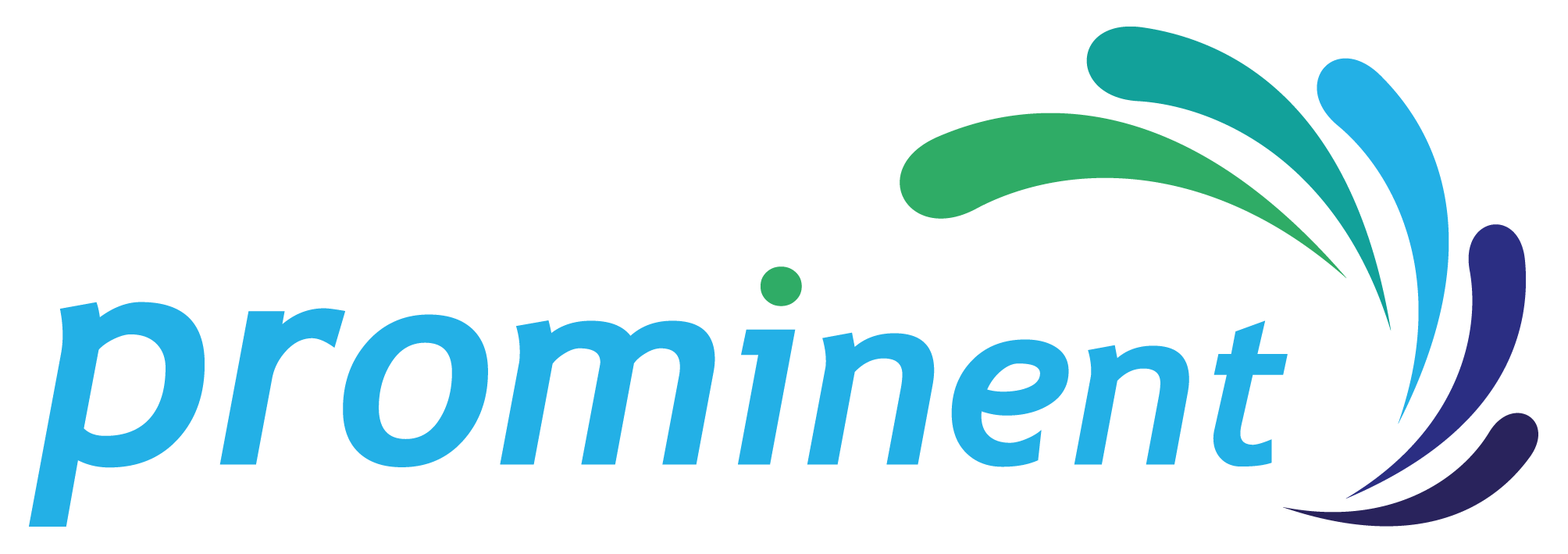The WP-structure of PROMINENT consists of seven interrelated WP’s:
- WP1 (state of play) will identify and select the best available greening technologies & concepts. Barriers and facilitating factors to uptake of these technologies and concepts will be identified as a basis for developing appropriate counter-measures. WP1 will lay the foundation to execute the activities in WP2-5.

- WP2 (advanced concepts for mass introduction) will develop standardized solutions and concepts for promising technologies in order to enable their further mass implementation. Furthermore, WP2 will prepare and specify the pilot projects on alternative energy concepts and energy-efficient navigation.
- WP3 (certification & monitoring) will evaluate options for certification procedures for new engines and retrofit solutions for vessel operators to comply with stricter emission limits. Furthermore, WP3 will prepare and specify the pilot on new certification/monitoring regimes as carried out in WP5.
- WP4 (digital education tools) will assess the use of ship-handling simulators for education, training and examination purposes and develop digital tools for cargo handling, ship stability and energy-efficient navigation. In addition, prototypes of e-SRB (Service Record Book) and e-Logbook as well as on digital education tools will be developed for testing in WP5 and assessed.
In order to assess the real-life implementation of LNG fuelled vessels, retrofit of diesel after-treatment, energy-efficient navigation and digital education tools as well as innovative monitoring systems for emissions and operational profiles, WP5 (real-life pilot deployment) will execute and technologically evaluate the pilot deployments in these areas. The results are fed back in WP2, 3, 4 and 6 for further elaboration of the technologies and the roll-out plan.
The outcomes of WP5 will feed the activities of WP6 (roll-out), where the pilots and results of WPs 2 to 4 will be reviewed and assessed from a broader perspective. This will result in a key user buy-in plan as well as policy recommendations and a draft implementation roadmap in order to ensure and the support the mass implementation of alternative technologies and concepts.
A strong project management (WP7), with representatives of each of the WP leaders, will be responsible for the overall technical coordination of the project, the liaison with the European Commission, project controlling as well as the dissemination of results.
